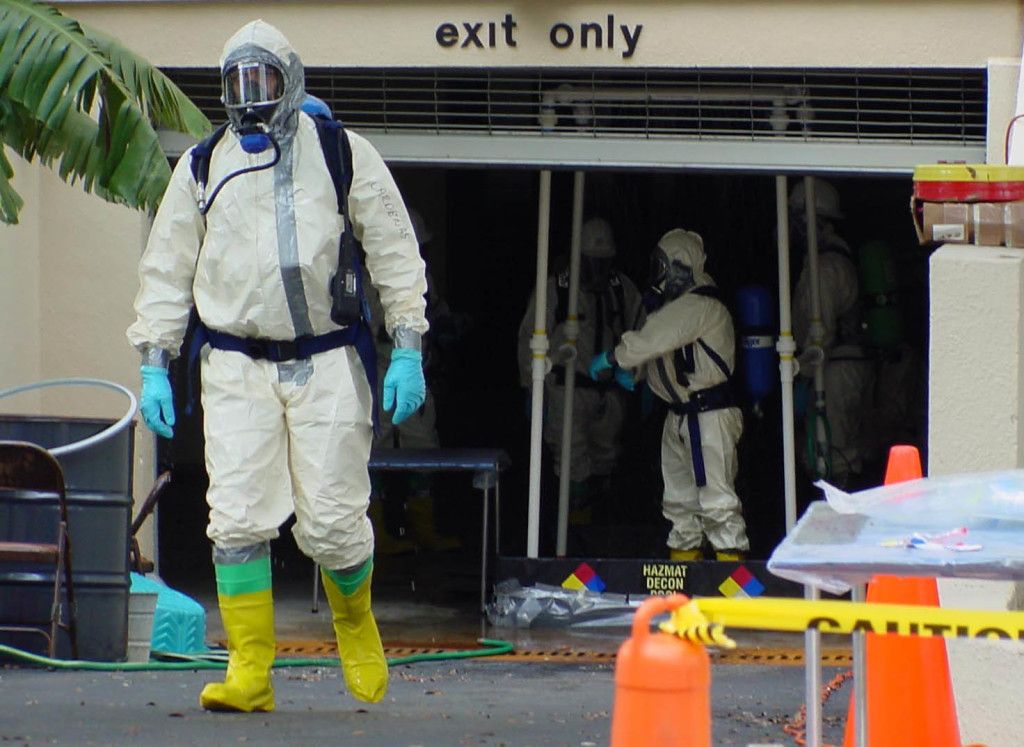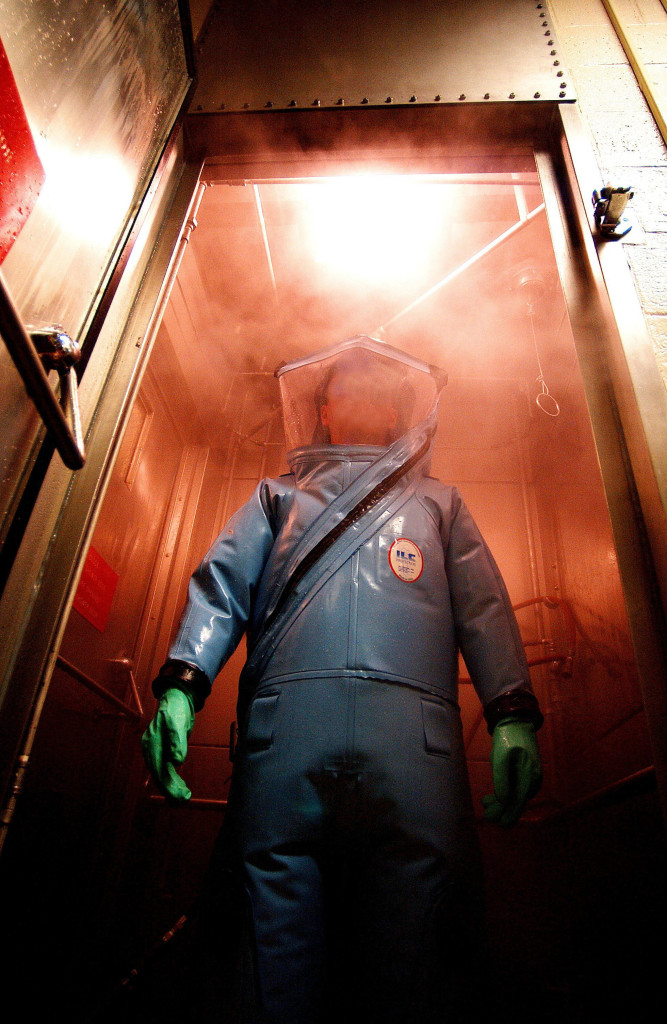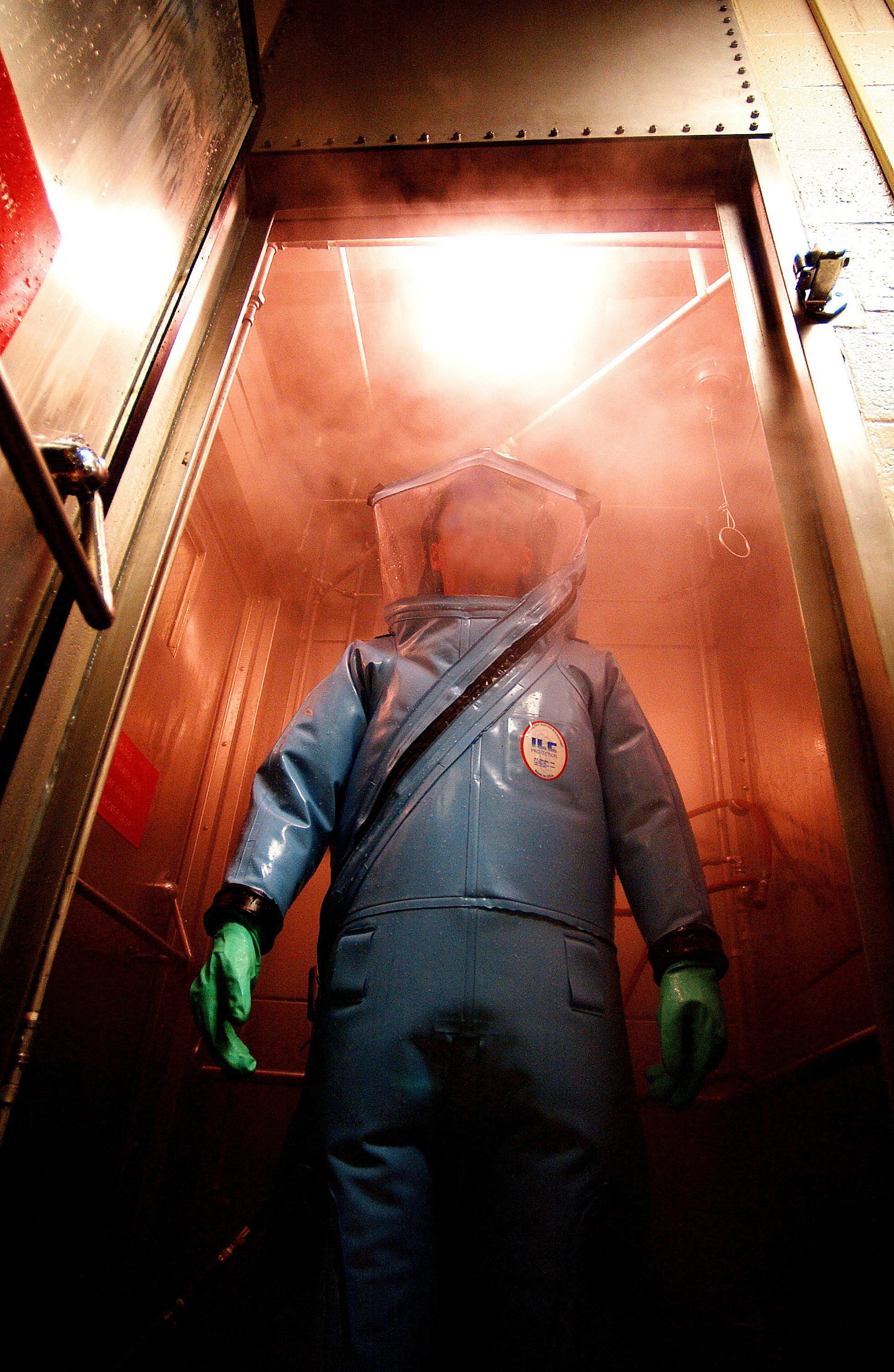$50 Million Anthrax Lawsuit Settled

October 31, 2011
Share
“Justice has been served,” the lawyer for the family of Robert Stevens, the first victim of the 2001 anthrax attacks, told The Palm Beach Post. The family has settled its $50 million wrongful death lawsuit against the U.S. government. Terms of the settlement, which is awaiting final approval from the Justice Department, have not been disclosed.
The family had accused the government of negligence, charging that it failed to adequately secure stocks of anthrax, one of the deadliest biological weapons, at the U.S. Army Medical Research Institute for Infectious Diseases (USAMRIID) at Fort Derick, Md.
Attorney Jason Weisser said that the decision to settle was not easy and that the family would have liked a public airing at trial of the lax security procedures at USAMRIID. Last week, our partners at ProPublica and McClatchy Newspapers uncovered two long-secret reports from outside investigators that described a lab “rife with such security gaps that the deadly spores could have easily been smuggled out of the facility.”
Weisser described Stevens’ widow Maureen as “so pleased … that the security protocols are so much better today than they were before.”
In 2010, the FBI’s criminal investigation concluded that Dr. Bruce Ivins, an anthrax vaccine specialist at USAMRIID, was the sole perpetrator behind the 2001 anthrax attacks, which killed five people. But our recent investigation has raised serious questions about the strength of the government’s case.
This summer, we reported that Justice Department lawyers who were defending the government in the Stevens case said in a July 15 court filing in the case that Ivins lacked the “specialized equipment” needed to dry wet anthrax spores into the airborne powder that could be easily inhaled.
After hearing from the FBI and the department’s Criminal Division, the civil attorneys persuaded a federal judge in West Palm Beach, Fla., to permit 10 revisions to their position so it conformed with the FBI’s determination that Ivins did have equipment available to do the job.
Weisner declined to tell the Post what was behind the government’s decision to settle the lawsuit. But he noted that U.S. District Court Judge Daniel T.K. Hurley was scheduled to hear arguments Wednesday on the government’s motion to throw out the Stevens family’s suit.
Related Documentaries
Latest Documentaries
Related Stories
Related Stories
Explore
Policies
Teacher Center
Funding for FRONTLINE is provided through the support of PBS viewers and by the Corporation for Public Broadcasting, with major support from Ford Foundation. Additional funding is provided the Abrams Foundation, Park Foundation, John D. and Catherine T. MacArthur Foundation, Heising-Simons Foundation, and the FRONTLINE Trust, with major support from Jon and Jo Ann Hagler on behalf of the Jon L. Hagler Foundation, and additional support from Koo and Patricia Yuen. FRONTLINE is a registered trademark of WGBH Educational Foundation. Web Site Copyright ©1995-2025 WGBH Educational Foundation. PBS is a 501(c)(3) not-for-profit organization.






















